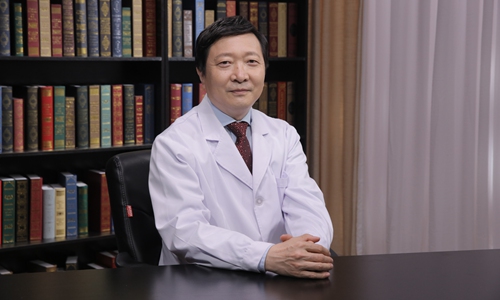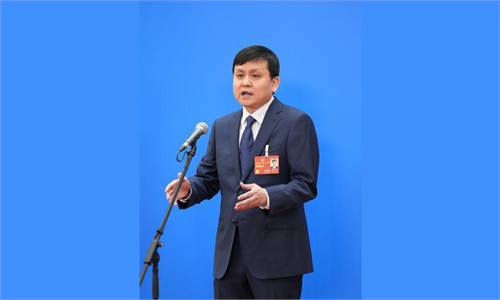China's major hospitals should increase ICU beds to 10 percent of total capacity in next five years: political advisor

A file photo of Wang Guangfa Photo: Courtesy of Wang Guangfa
Major hospitals in China should increase their intensive care unit (ICU) beds to 10 percent of total bed capacity in next five years as well as train more ICU doctors by seeking financial support from the government, Wang Guangfa, a political advisor and renowned respiratory expert suggested.
China has summed up successful experiences during its three years of fight against COVID-19 epidemic, which prevented Chinese people from exposing to more dangerous and lethal variants, Wang, a doctor from Peking University First Hospital, who is also a member of the Chinese People's Political Consultative Conference (CPPCC) National Committee, told the Global Times on Sunday.
However, shortcomings were also exposed during the process, such as the lack of ICU beds, said Wang. He said before the COVID-19 cases surged at the end of last year, there were only four ICU beds per 100,000 people on national average level, accounting for 4 percent of total bed capacity; and the number increased to 8 percent during the COVID-19 peak
The total number of ICU beds for critically ill patients in China is seriously inadequate when compared with developed countries, such as 30 ICU beds for 100,000 people in the US and Germany, said Wang.
Besides, Wang said the construction standards of a hospital are still too low, and some hospitals were even equipped with inferior infrastructure. The insufficient supply of oxygen and electricity posed a major challenge for the transferring of ICU beds during the infection peak last year.
There are certain hospitals, due to lack of capital investment, which failed to retain their workforce, who chose to quit when emergencies such as COVID-19 spike, said Wang. He pointed out the hospital departments of treating infectious, respiratory and severe diseases are understaffed, and still too small relative to population size.
He cited the report of 20th National Congress of the Communist Party of China, which calls for strengthening health management for major chronic diseases and enhanceing the capacity for disease prevention and treatment as well as health management at the community level.
In order to address those shortcomings, Wang called for government and health authorities to help nationwide tertiary hospitals (which have the largest number of beds and provide comprehensive medical services) increase their ICU beds to 10 percent of total capacity; and then improve the infrastructure, such as oxygen and electricity supplies, so that the 10-20 percent of hospital beds can be converted to ICU beds to cope with public health incidents if necessary.
Wang also proposed more government funds to improve conditions and expand hospital department of treating infectious, respiratory and severe diseases. Moreover, hospitals should encourage young doctors to gain experiences in ICU wards.
During a government work report delivered by Chinese Premier Li Keqiang at the opening meeting of the first session of the 14th National People's Congress (NPC) on Sunday morning, Li said that more scientific, precise and sufficient virus prevention efforts are needed, as China has started managing COVID-19 with measures designed for combating Class B infectious diseases. The key point is to protect elderly, children and people with underlying diseases. China will push forward vaccine updating, development of new COVID-19 drugs to guarantee the supply of medicines, and protect public health.
According to a draft budget report submitted to deputies of NPC, the central government is going to extend fund guarantee for COVID-19 patients.


